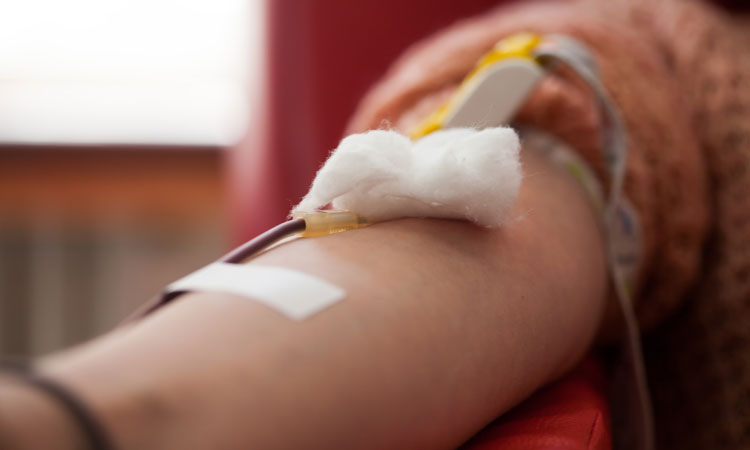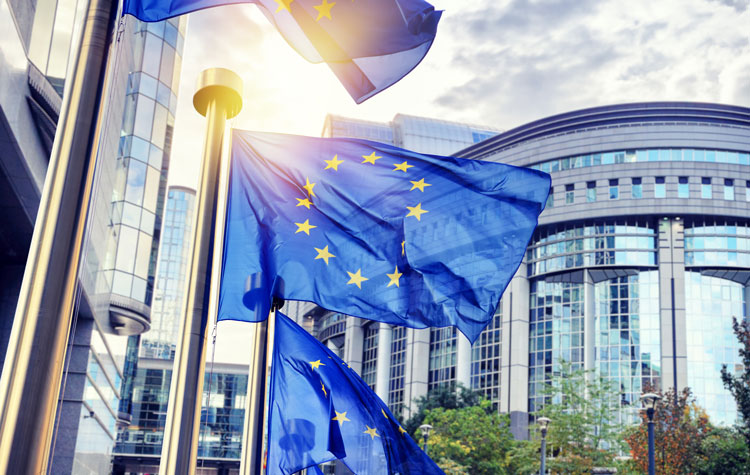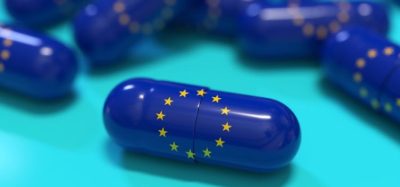Preparing for stricter standards on substances of human origin
Posted: 20 July 2023 | Elisabeth Kohoutek (King & Spalding), Lara Sophie Hucklenbroich (King & Spalding) | No comments yet
Manufacturers of innovative therapies and other stakeholders handling blood, tissues and cells must prepare for stronger European rules. Ulf Grundmann, Elisabeth Kohoutek and Lara Sophie Hucklenbroich of King & Spalding elaborate on what this means for manufacturers of advanced therapy medicinal products.


On 14 July 2022, the European Commission published a proposal for a regulation on substances of human origin (SoHO) intended for human application.1 The proposed regulation is currently in the legislative process and intended to replace the largely-outdated legislation on Blood, Tissue and Cells (BTC legislation).2
Having been in place for almost 20 years, the current legislation on blood and on tissues and cells is now outdated and does not reflect the health and societal evolutions
These rules govern the sourcing and use of starting materials for innovative therapies, such as blood, tissues and cells. In addition to hospitals and blood transfusion centres, pharmaceutical, device and other companies involved with blood products and cell- and gene-therapy products are advised to closely monitor developments surrounding the proposed regulation. This will enable them to make any necessary adjustments or changes, or take regulatory actions, in a timely manner to be legally compliant under the proposal.
Background on BCT legislation in the EU
Every year EU patients are treated with 25 million blood transfusions, a million cycles of medically assisted reproduction, over 35,000 transplants of stem cells and hundreds of thousands of replacement tissues.1
Having been in place for almost 20 years, the current legislation on blood and on tissues and cells is now outdated and does not reflect the health and societal evolutions. In particular, its transition into national laws had led to discrepancies that fragmented the EU market creating the need to adapt it to accommodate the increasing new ways of processing and using BTC for medical purposes. Aiming to address these shortcomings, the proposed regulation intends to:
- Ensure safety and quality for patients treated with SoHO therapies and fully protect them from avoidable risks linked to SoHOs
- Ensure safety and quality for SoHO donors and for children born from donated eggs, sperm or embryos
- Strengthen and allow for harmonisation of oversight practices among member states
- Facilitate the development of safe and effective innovative SoHO therapies
- Improve the resilience of the sector, mitigating risk of shortages.
What manufacturers must prepare for
The proposal introduces several changes to the existing legal framework on SoHO, that considerably affect the business of manufacturers for innovative therapies and other stakeholders handling blood, tissues and cells.
Broadened scope of application
The proposed SoHO Regulation extends the scope of application to any SoHOs that are to be applied to humans (except for solid organs for transplantation, which remain regulated separately under a dedicated directive). In concrete terms, the extended scope of application affects a proportion of companies and stakeholders that currently fall outside the scope of existing BTC legislation, but would now be included within the proposed SoHO Regulation and thus must comply with stricter regulations.


The proposed regulation on substances of human origin aims to improve harmonisation across the EU
The proposed regulation on substances of human origin aims to improve harmonisation across the EU
The regulation’s scope of application is threefold and covers SoHO products, SoHO activities, and SoHO donators and recipients. The new rules define a SoHO as “any substance collected from the human body in whatever manner, whether it contains cells or not and whether those cells are living or not”. Thus, SoHOs include blood, blood components, tissues, cells and any substance of human origin such as human breast milk, intestinal microbiota and blood preparations, as well as any other SoHO that may be applied to patients in the future. Covered SoHO activities are “action[s], or series of actions, that [have] a direct impact on safety, quality or efficacy of SoHOs.” Thus, the scope of application expands to include the following SoHO activities: recruitment of SoHO donors; review of donor history and assessment of SoHO donor suitability; testing of SoHO donors for suitability or matching purposes; collection of SoHOs from donors or patients; processing of SoHOs; quality control testing of SoHOs; storage of SoHOs; release of SoHOs; distribution of SoHOs; importation of SoHOs; exportation of SoHOs; use of SoHOs in humans; and monitoring of clinical outcomes of SoHOs.
New general obligations on SoHO entities and SoHO establishments
The proposal introduces new general obligations on SoHO entities and SoHO establishments. A SoHO entity is defined as an organisation legally established in the Union that carries out one or more of the above SoHO activities. SoHO establishments are a subcategory of SoHO entities where both the processing and storage of SoHOs takes place.
The new general obligations of SoHO entities include:
- Registration as a SoHO entity with the national competent authority. This step is mandatory before an entity can commence a SoHO activity
- Nomination of a responsible person if a SoHO entity releases SoHO for clinical use
- When importing SoHOs, the SoHO entity must obtain prior authorisation as an importing SoHO entity from the competent authority
- Obtaining an authorisation to release or, in an autologous context, prepare and immediately apply SoHO preparations to a recipient. To apply for authorisation of SoHO preparations, applicants must, among other things, describe in detail the SoHO activity performed with the SoHO preparation and provide results of a risk assessment together with the intended clinical indication for which it will be used
- Activity data collection and reporting, traceability and coding. Strict requirements apply, especially with regard to traceability and coding. SoHO entities must implement a traceability system to unmistakably link each SoHO donor to their SoHO donation and to all documents, samples, SoHO preparations and SoHO entities that are associated with that SoHO from the point of collection to human application and outcome monitoring. In addition, these traceability requirements also apply to imported SoHOs
- Applying the Single European Code (SEC) to SoHOs distributed for human application (except for some specific SoHOs)
- In case of a critical SoHO (for which an insufficient supply will result in serious harm or risk of harm to patients) SoHO entities must alert the competent authority in case of sudden fall in supply and may have to implement emergency plans
- Additional requirements apply for SoHO establishments whose activities include the processing and storage of SoHOs (eg, the obligation to have a quality management system in place or to designate a physician responsible for specific tasks)
Compliance with EU-wide technical standards
Under the proposed SoHO Regulation the safety standards are continuously developed by scientific expert bodies in order to swiftly include new evidence and update safety requirements. In addition to protecting patients, such standards must now be extended by the covered entities to protect offspring born from medically assisted reproduction as well as donors.
Transmitting data to the EU SoHO platform
Under the proposed SoHO Regulation, SoHO entities will be obliged to collect certain data about their activities and transmit these once a year in summarised form to the newly created EU SoHO platform.
The cell and gene therapy CDMO bottleneck isn’t capacity – it’s capability
Being developed, hosted and centrally managed by the European Commission, the new proposed EU SoHO Platform will be accessible to competent authorities, SoHO entities and establishments, patients, donors (and offspring), expert bodies and the Commission in order to support the information exchange between the competent authorities and the SoHO entities. Exchange of best practices and joint inspections of SoHO entities would be encouraged/supported by the EU Commission.
Impact on ATMPs
The revision of the BTC legislation is especially important for life science companies developing advanced therapy medicinal products (ATMPs, such as cell and gene therapies), as requirements for donation, procurement and testing apply to SoHOs used in the production of ATMPs.
Aiming to ensure a high level of safety and quality of human tissues and cells used in medical treatments, the proposed regulation is expected to have several impacts on companies developing ATMPs, including:
- Increased regulatory oversight of ATMPs, as it will require additional safety and quality standards for the use of SoHOs in the development of ATMPs. This may lead to longer development timelines and higher costs for life science companies.
- Potential requirements for ATMP developers to implement new systems for tracking and tracing the use of SoHOs throughout the development process. This will enable better monitoring of the safety and quality of these products, but it may also require additional investments in IT infrastructure.
- It may require changes to the manufacturing processes of ATMPs to ensure compliance with the new safety and quality standards. This may also require investments in equipment and facilities.
The proposed regulation on SoHO is expected to have a significant impact on the development and commercialisation of ATMPs, both in terms of increased regulatory oversight and potentially increased public confidence in these innovative therapies. Overall, while the proposed regulation on SoHO may present some challenges for ATMP developers, it is also expected to ultimately improve patient safety and thus build trust not only in ATMPs, but also among patients and healthcare providers, which could ultimately benefit ATMP developers in the long run.
Greater harmonisation
Aiming to achieve greater harmonisation, the European Commission proposes to replace the current legislation on BTC by a regulation, ie, a legal tool directly applicable in all EU member states.The revised legal framework is intended to ensure a greater, but not full, harmonisation, as member states would be expressly authorised to uphold certain key principles from the existing rules, such as the general principle of voluntary and unpaid donation. States will also retain full competences on ethical decisions regarding the provision of SoHO-based treatments in their respective healthcare systems. For example, contrary to many other member states, egg donation is and will remain prohibited in Germany.
Next steps
The public consultation period ended on 8 September 2022 and feedback provided is currently being assessed by the European legislator. The proposed Regulation will now be discussed by the Council and the European Parliament. Once the final text is agreed, adopted and published, most of the provisions will take effect after a transition period set at either two or three years. In consideration of this rather short transition period, and in view of the significant changes that the proposed SoHO Regulation implies, the companies and stakeholders concerned should already become familiar with the proposed changes and new obligations they will have to face.
About the authors






Lara Sophie Hucklenbroich supports counselling life sciences clients from the pharmaceutical, medical devices, and food industries. She studied law at the Goethe Universität Frankfurt am Main focusing on European laws. Before joining King & Spalding, she gained experience in capital markets law at Linklaters LLP.
References
- 1. European Commission. Proposal for a REGULATION OF THE EUROPEAN PARLIAMENT AND OF THE COUNCIL on standards of quality and safety for substances of human origin intended for human application and repealing Directives 2002/98/EC and 2004/23/EC [Internet]; 2022. [Cited 2023Mar]. Available from: https://eur-lex.europa.eu/legal-content/EN/TXT/?uri=COM%3A2022%3A338%3AFIN.
- Directive 2002/98/EC of the European Parliament and of the Council of 27 January 2003 setting standards of quality and safety for the collection, testing, processing, storage and distribution of human blood and blood components and amending Directive 2001/83/EC (OJ L 33, 8.2.2003, p.30).
Issue
Related topics
Biologics, Bioprocessing, Bioproduction, Legal, Manufacturing, Regulation & Legislation, Stem Cells









